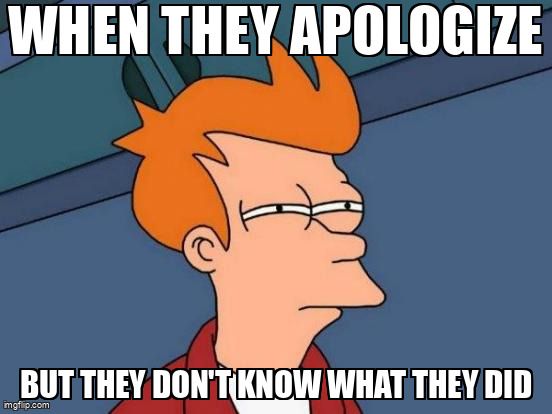
This logo isn't an ad or affiliate link. It's an organization that shares in our mission, and empowered the authors to share their insights in Byte form.
Rumie vets Bytes for compliance with our
Standards.
The organization is responsible for the completeness and reliability of the content.
Learn more
about how Rumie works with partners.
Have you ever lied to someone and felt it hanging over your conscience, but didn't know how to apologize to set things right?

You're definitely not alone! Almost everyone experiences this at some point in their lives. Purposeful and careful apologies can help you to repair and even strengthen the relationships that may have been damaged by the lie itself
Learn how to apologize for lying, in a way that can help you mend the relationship.
Step 1: Acknowledge Your Mistake
If you regret lying and want to make amends, good news — you've already taken a huge step in the right direction! Lying not only harms your relationship with the other person by damaging their trust in you. It also lowers your self-esteem if it happens over and over again.
 Photo by Kelly Sikkema on Unsplash
Photo by Kelly Sikkema on UnsplashNobody wants to listen to a half-hearted apology. When you start your apology...
Do ✅
Take full responsibility for your lie and express your remorse clearly for what you've done.
How to apologize for lying:
"I made a mistake when I lied about that, and I'm sorry."
Don't ✖️
Try to shift the blame to the other person or use vague words. This shows that you aren't truly remorseful.
How NOT to apologize for lying:
"I'm sorry that you didn't like what I did. I guess that was my bad."
Quiz
Which statement truly takes responsibility without avoiding or pushing blame?
Be direct with your words and don't add qualifications to lessen the blame on yourself. When you use the passive voice ("you felt hurt") or focus on the other person's reaction to the lie, you redirect the conversation away from your actions.
Step 2: Express Clear Remorse
Part of repairing the relationship after a breach of trust is recognizing the harm you have done to the other person.
So, it's important to express that you understand the consequences of your lie, and that you truly feel sorry for causing those consequences. If you show that you understand the harm you've caused, the other person has a better chance of believing your apology.
How to apologize for lying: ✅
"When I lied about my debt, I put you in a risky financial situation without your consent, and I really regret not being transparent with you."
How NOT to apologize for lying: ✖️
"I shouldn't have lied about my debt. I'm sorry."
Step 3: Commit to Being Better
For some, saying sorry is enough. But an apology can feel empty without a commitment to change. What's the point of apologizing if you just lie again at the next opportunity, and break their trust all over again?
Do ✅
Say what you plan to do to strive for change.
You might not be perfect, but showing a genuine desire to avoid future lying and a willingness to do better means that you're willing to put effort into this relationship.
Don't ✖️
Leave your apology without expressing how you want to make situation better moving forward.
Use vague phrases like "I'll do better" with no explanation, which may sound ingenuine.
If you're not sure how to change, make it a conversation. Ask them, "How can I make things right?"
 Photo by Diana Polekhina on Unsplash
Photo by Diana Polekhina on UnsplashTake Action
 Photo by Nathan Anderson on Unsplash
Photo by Nathan Anderson on UnsplashApologizing for lying can be scary, but it's better to come clean and prioritize open, honest communication in your relationship with others.
Here are some small steps you can take to start working towards your apology:
This Byte has been authored by
Lucia Lin
Instructional Designer
